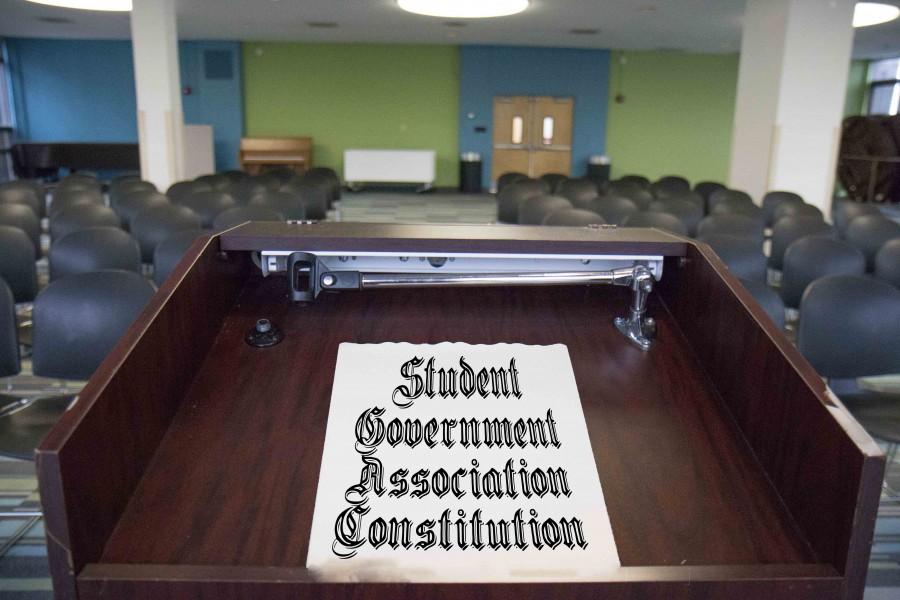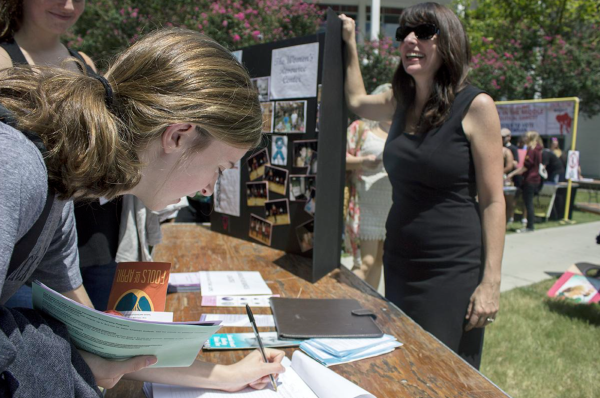Editorial: Students should vote “no” on SGA amendments
Amendment to get rid of the commissioner of elections
Of all the positions that the SGA wants to eliminate, the most bizarre one is the commissioner of elections. The commissioner of elections is the one who regulates the election procedure and makes sure it runs smoothly. If the SGA doesn’t find a commissioner of elections, the powers are vested in the SGA Chief Justice, which is how it’s done now. The amendment would make this permanent.
This election alone has been racked with unconstitutionality and confusion. In the ballot that students will be voting on, there is a position missing which is constitutionally guaranteed to them: the college president. This is fraud. Not only that, but the SGA dropped on students the week before applications were due that they had to have a running mate to throw their names in for the presidential election. This is a bad idea on principle and had the effect of disallowing interested students the ability to run. They also forgot that the College of Social Sciences was being combined with the College of Arts and Sciences, which changes who votes for what candidate. Now, they’re scrambling to correct this.
All of this doesn’t even include their failure to allow freshmen to run for the senate in the fall, as was clearly written in the one single document about how to run elections.
What the SGA needs most right now is a commissioner of elections, not to get rid it of it! So please, Loyola, if you vote against any amendment, have it be this one.

Amendment to strike college president position from the Senate
The college presidents are Senators who serve as liaisons to the deans of the colleges. If there is ever something that a college could do that would affect the students, the college presidents would take it to the Senate and the student body, so they could be aware of it. If the SGA did something that could affect the colleges, the college presidents would approach the deans to explain the issue and get the deans’ support.
The SGA proposed this amendment because they’ve made it an internal issue. Instead of holding elections for the position — which is in the constitution and the only document about how to do elections — they’ve traditionally chosen amongst themselves who should be the college president. The SGA thinks it’s good to get rid of this position because they want the senators to have more responsibility. The problem with this is that communicating with the dean shouldn’t be their responsibility – rather, obligation. The college senators represent the students. The college presidents represent the colleges. These are different titles which come with different duties.
The dean of the College of Arts and Sciences, Maria Calzada, has said that in her time as dean, she has never been approached by a college president. This is probably because the people who became college presidents didn’t run for that position, so weren’t motivated to do that job.
This could be an extremely valuable position in the Senate – if used as it was meant to. Loyola should give it a try first before getting rid of it.

Amendment to add the First Year Council as an executive standing committee
The First Year Council was a project by the SGA this year to let freshmen who would have run for the Senate during their first semester dabble in each branch instead. The idea behind this was to let them learn how the process works before they took on any responsibility themselves.
Democracy doesn’t need training wheels. The best education comes from taking on responsibility and learning how to manage it properly, not watching other people do it. If students vote for this amendment, they would be saying that freshmen don’t deserve their own elected representatives.
If the SGA has seen such stellar success with the First Year Council, they can keep it — as an ad hoc committee, just as it is now. It should not be a permanent addition to the constitution because it would prevent freshmen from being able to have their own elected representatives in their student government.

The editorial represents the majority opinions of The Maroon’s editorial board and do not necessarily reflect the opinions of Loyola University.

R. Gage is an economics junior and the Managing Editor for Electronic Properties. He was previously a guest columnist and the Opinion and Editorial Editor....











